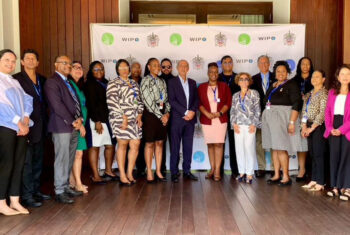Belmopan. March 12, 2019. The European Union (EU) today issued a list of “non-cooperative jurisdictions for tax purposes” adopted by the European Union’s Council at its meeting on 12 March 2019. The list, which includes Belize, identifies jurisdictions for purportedly “failing to meet agreed tax good governance standards”.
The Government of Belize has significant concerns about the erroneous conclusions drawn about Belize’s commitment to work with its global partners in establishing a modern fair international tax framework under which profits are taxed where economic activity and value creation occur, as well as the process by which the EU concluded that Belize should be placed on this list.
The Organisation for Economic Cooperation and Development (OECD) was assigned by the Group of 20 highly developed economies to set international standards of good governance. The Forum on Harmful Tax Practices (FHTP), an arm of the OECD, which includes Belize, the European Commission, the 15 EU member states, and 128 other jurisdictions brings together all jurisdictions on an equal footing and already developed a list of jurisdictions deemed to be engaged in “harmful tax practices” as part of a careful, inclusive, collaborative and consultative process.
The FHTP has reviewed several “categories” of regimes across the 164 jurisdictions since 2015, andhaving joined the BEPS initiative, Belize’s International Business Companies Regime (IBC Regime) was similarly reviewed. In its October 2017 report, “Harmful Tax Practices – 2017 Progress Report on Preferential Regimes,” the OECD found that Belize’s IBC regime had potentially “harmful features”. The Government of Belize subsequently gave an undertaking, that the IBC regime would be amended to remove its “harmful features,” in accordance with FHTP timelines by 31st December 2018.
Via a separate process, subsequent to the undertaking given by Belize to the OECD, the European Union Code of Conduct Group (COCG) had also invited Belize to provide “… high-level political level commitment…” that Belize will address deficiencies also by 31st December 2018 or risk being included in the separate EU list of non-cooperative tax jurisdictions. By two letters dated 14th and 16th November 2017, Belize repeated its commitment to introduce legislation to address the FHTP-identified harmful tax practices of the IBC regime by 31st December 2018, and in addition committed to amend the Export Processing Zone (EPZ) regime by 31st December 2018 in order to comply with the criteria applied by the COCG.
In December 2018, the National Assembly adopted the International Business Companies (Amendment) Act, 2018, and the Designated Processing Areas Act, 2018, which respectively sought to remove the “harmful features” identified by the OECD and/or the EU in these regimes. Consequential amendments were introduced via the Income and Business Tax (Amendment) Act, 2018, and the Stamp Duties (Amendment) Act, 2018 to bring IBCs and entities operating in EPZs into Belize’s income and business tax regime.
The measures that Belize adopted with these legislative changes were first reviewed and discussed by the FHTP at its 51st Meeting held at the OECD Headquarters in Paris, France from 9th-11thJanuary 2019. The FHTP reached new conclusions on 57 regimes reviewed at that meeting; but most importantly on Belize’s IBC regime, the FHTP concluded, based on the measures Belize adopted that the non-IP part of the Belize IBC regime is “Not Harmful (Amended)” and the IP part of the regime “Abolished”.
The COCG for its part reviewed the changes adopted by Belize at its meeting on 30th January 2019. On 1st February 2019, the Chair of the COCG wrote to Belize charging that Belize, in exercising its sovereign right to implement a tax regime, consistent with Belize’s existing income and business tax regime, had introduced a “new regime” with similar harmful effects as the regimes that Belize abolished at the end of 2018. The COCG invited Belize to supply another high-level political commitment that it would amend or abolish this so-called “new regime” by 31st December 2019, without any grandfathering mechanism. The COCG made it clear that not providing such a commitment could lead to Belize being placed on the EU list of non-cooperative jurisdictions for tax purposes. Via letter dated 12th February 2019, Belize acquiesced and provided the new undertaking demanded by the EU.
Belize also continued to engage positively and actively with the EU to address all other outstanding technical issues with respect to Belize’s regime. Belize’s best efforts to address these technical issues did not find favour with the European Commission. Therefore, Belize wrote to the Chair of the COCG on 26th February 2019 and made a further high-level and time-bound political commitment to introduce additional amendments with consequential secondary amendments to other relevant legislation, where necessary, to address these other technical concerns. The undertaking included a commitment to submit the necessary draft legislation to Parliament in March 2019 with a view to having the amended legislation take effect from 1st April 2019. These amendments will be introduced in Parliament on 15th March 2019.
Parallel to its legislative and technical efforts to respond to the EU, Belize has engaged the EU and key EU member states bi-laterally at the political level to share its progress in tax good governance standards, as well as to protest the EU’s unilateral, non-consultative and inflexible process. Additionally, Belize takes part actively in the efforts of CARICOM and the African, Pacific and Caribbean Group of States (ACP) to seek a halt to the EU’s practice of blacklisting and to engage third countries in serious consultative dialogue.
Having acted in good faith, Belize now finds itself unfairly and erroneously labelled by the European Union as a “non-cooperative tax jurisdiction”, via a process that contrasts starkly with the OECD’s inclusive and consultative methodology. Indeed the rushed EU process can be characterised as non-consultative, inflexible and insensitive to the circumstances of small, highly vulnerable states such as Belize. The EU “listing” process is regrettably also devoid of the values of shared responsibility, mutual respect and accountability, fairness, and solidarity that underpins Belize’s relations with the EU and its member states. As well, objective empirical data supporting the EU’s allegation of harmful tax practices by Belize has not been shared. Indeed the European Commission to date has provided Belize with only a cursory basis for its determination, as well as failed to provide Belize with any meaningful opportunity to challenge its inclusion on its list—a central component of the inclusive OECD process.
Nonetheless, Belize remains committed to working positively and actively over the coming days and weeks, with the EU on the basis of a fair, transparent, and inclusive dialogue, to address all legitimate concerns and to ensure that Belize is promptly removed from the list of “non-cooperative jurisdictions for tax purposes”.
In this respect, Belize reaffirms its commitment to work with its global partners in establishing a modern fair international tax framework under which profits are taxed where economic activity and value creation occur.
Ends


